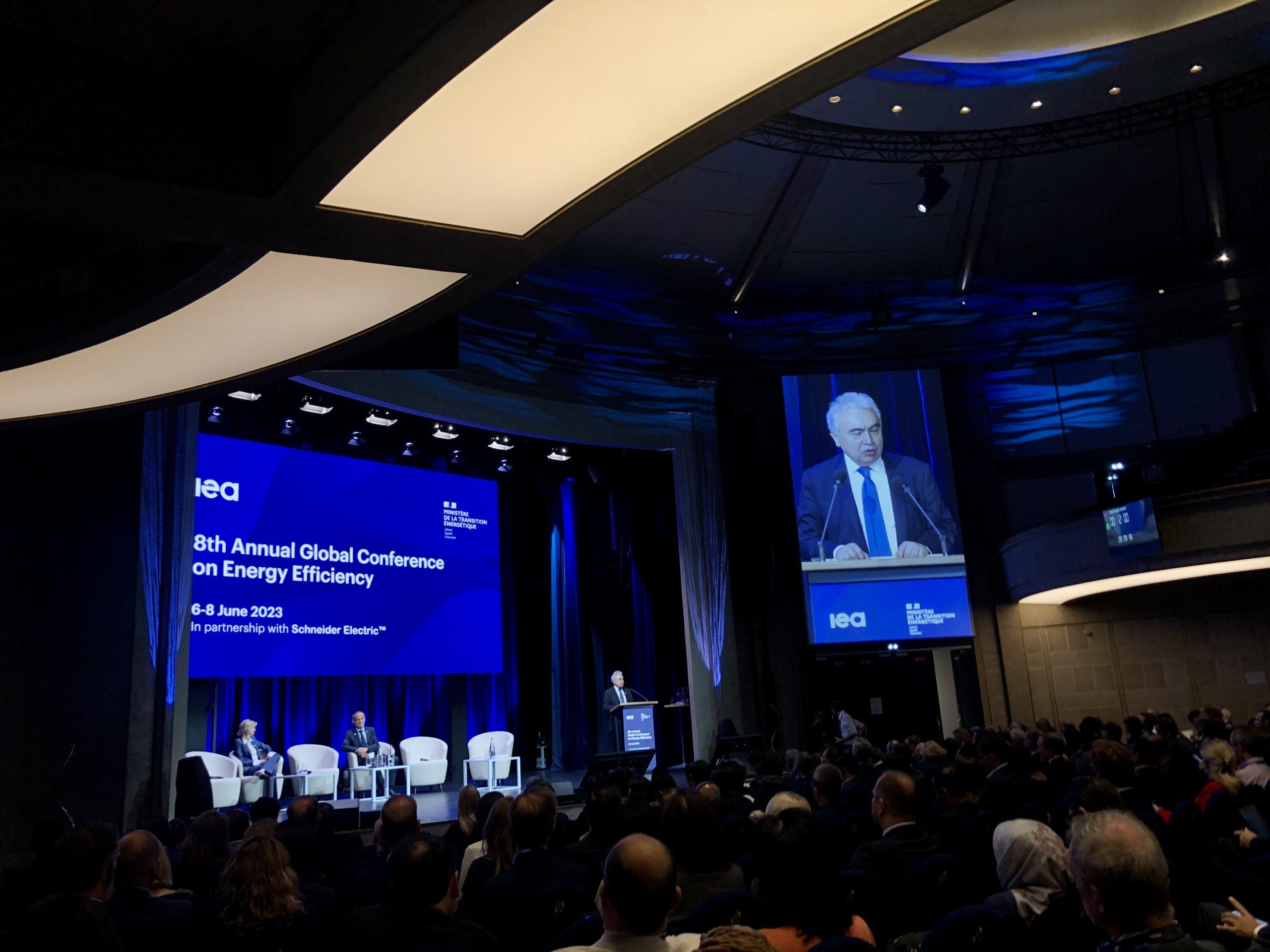
The world needs to double its progress on energy efficiency between now and 2030 to get on track to net-zero emissions by 2050 and stand a good chance of limiting global warming to 1.5°C, according to a new report from the International Energy Agency (IEA).
The analysis coincides with the IEA’s 8th Annual Global Conference on Energy Efficiency convening 700 people from more than 80 countries, including more than 30 ministers and 50 CEOs, in Versailles, France, to discuss how to accelerate energy efficiency improvements.

Discover B2B Marketing That Performs
Combine business intelligence and editorial excellence to reach engaged professionals across 36 leading media platforms.
“Since 24 February last year [the start of the Ukraine War], we have seen energy markets go through historic turbulence,” the IEA’s executive director, Fatih Birol, told conference delegates. “Energy and geopolitics has been very much interwoven, which has seen energy prices soar – but a new clean energy world is emerging.”
“In the last year-and-a-half, most countries came up with new and binding policies for energy efficiency; for buildings, for transportation, for industry. As a result, global energy efficiency improvement last year was two times higher than the average over the previous five.”
Ramping up annual energy efficiency progress from 2.2% today to more than 4% by 2030 would lower global energy demand by 190 exajoules and CO₂ emissions from fuel combustion by almost 11 gigatonnes by 2030, almost one-third of current global energy consumption and emissions, says the IEA in its report. At the same time, this could create 12 million jobs, expand energy access to 800 million people, reduce energy bills, decrease air pollution and relieve countries’ dependence on fossil fuel imports.
The IEA forecasts energy efficiency investment to reach record levels of more than $600bn in 2023, despite a slowdown in year-on-year growth as the high cost of capital weighs heavily on potential projects. Under current expected and announced policies, efficiency-related investment is projected to rise by a further 50%. However, to see annual progress double, investments in the sector must increase threefold to $1.8trn by 2030, says the IEA.

US Tariffs are shifting - will you react or anticipate?
Don’t let policy changes catch you off guard. Stay proactive with real-time data and expert analysis.
By GlobalDataThrough the likes of the REPowerEU plan in Europe, the Inflation Reduction Act in the US and Japan’s Green Transformation initiative, nations representing more than 70% of the world’s energy consumption have introduced new efficiency policies, or strengthened existing ones, since the start of the energy crisis. More than 25 countries have launched major awareness campaigns to help reduce energy use, and more than $900bn has been spent shielding consumers from rising energy bills.
Sales of key energy efficiency technologies are also surging. Heat pump sales increased by more than 10% globally in 2022, and by nearly 40% in Europe. Additionally, the share of electric vehicles in global car sales was 14% in 2022 and is expected to rise to 18% in 2023.
“But we have to do more,” said Birol. “By 2030, we need to double energy efficiency levels and triple renewables capacity, so that energy can be affordable, secure and to help us reach our climate targets.”





